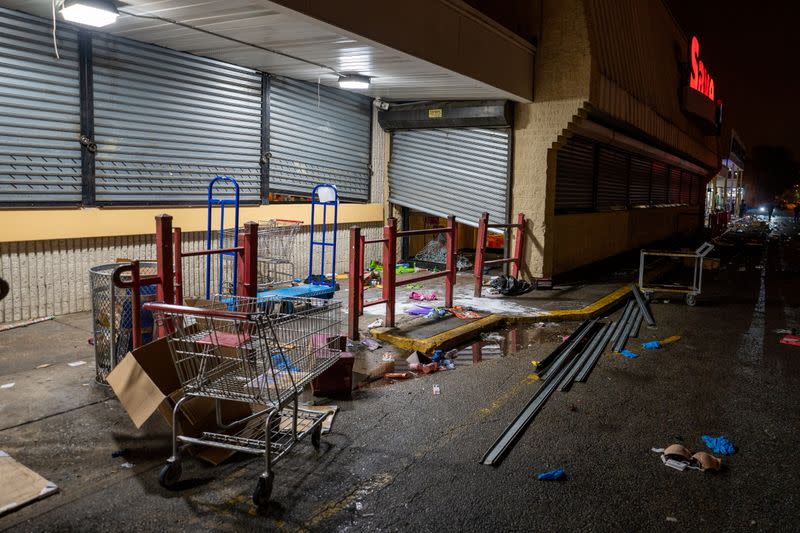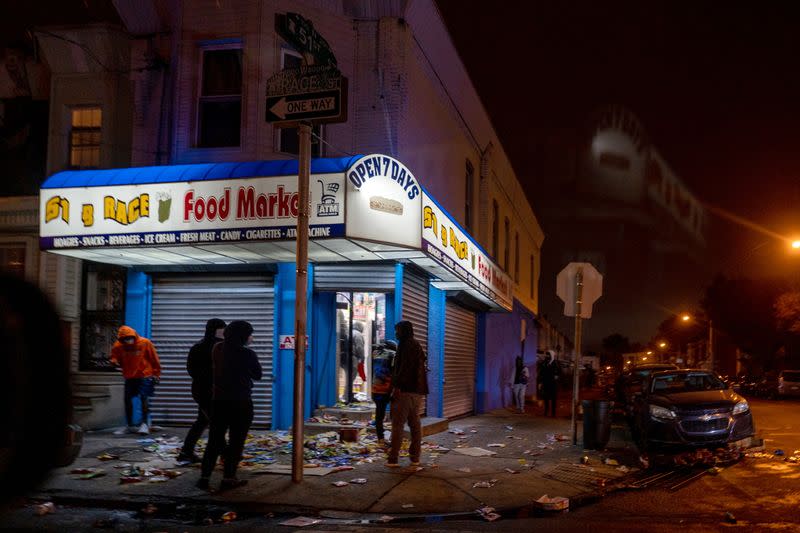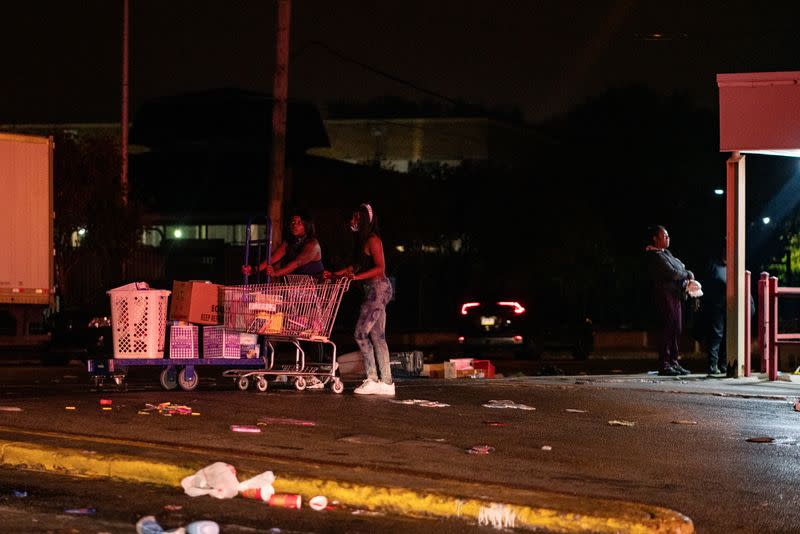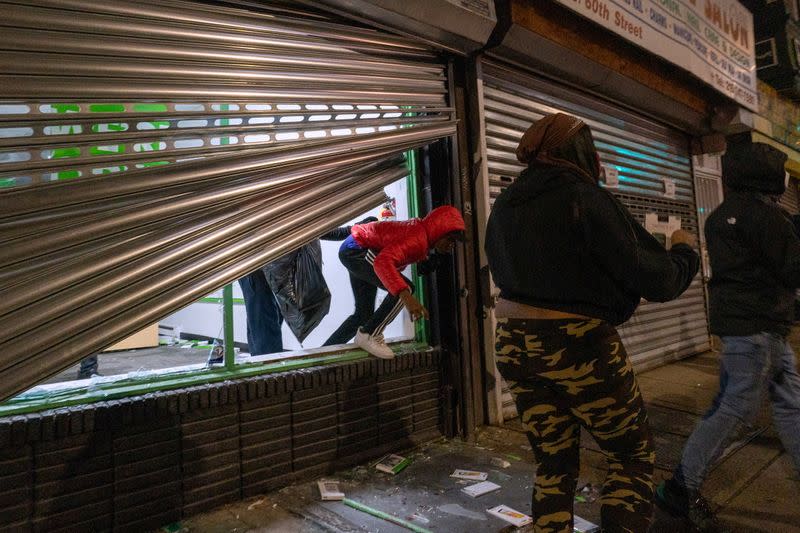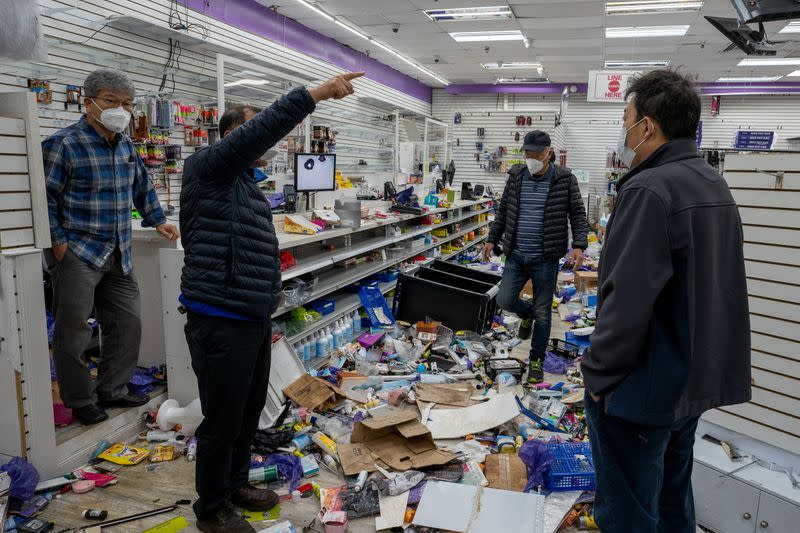Philadelphia police probe shooting death of Black man, protests flare
By Kanishka Singh
(Reuters) - The Philadelphia Police Department said on Tuesday it was investigating the killing of a Black man they say was armed with a knife, after the shooting involving two officers sparked sometimes violent protests in the U.S. city overnight.
Thirty officers were injured on Monday evening as police faced off with protesters, some of whom threw rocks and bricks in citywide unrest triggered by the death of 27-year-old Walter Wallace Jr., according to the police.
Video taken by a bystander and shared widely on social media showed Wallace approaching two police officers who drew their guns after warning him to put down the knife. The video shows the officers backing up, then cuts briefly from view as gunfire erupts and Wallace is shown slumping to the pavement.
"I recognize that the video of the incident raises many questions," Police Commissioner Danielle Outlaw said, adding that the Officer Involved Shooting Investigation Unit was probing the incident. "Residents have my assurance that those questions will be fully addressed by the investigation."
The violence is the latest in months of anti-racism protests across the United States since the May 25 death of George Floyd, a 46-year-old African-American, after a Minneapolis police officer knelt on his neck for nearly nine minutes.
Since the incident in Minneapolis, demonstrators have turned out nationwide to demand racial equality and an end to police brutality, with protests sometimes turning violent.
Activist groups reiterated a demand to defund the police, with the American Civil Liberties Union (ACLU) saying state violence could not be the answer to society's problems.
"It is time to divest in police and invest in community programs, including the kind of mental health services that allow intervention that may have prevented Mr. Wallace's killing," said Reggie Shuford, executive director of the Pennsylvania ACLU.
(Reporting by Kanishka Singh in Bengaluru and Nathan Layne in Wilton, Connecticut; Editing by Clarence Fernandez and Jonathan Oatis)

